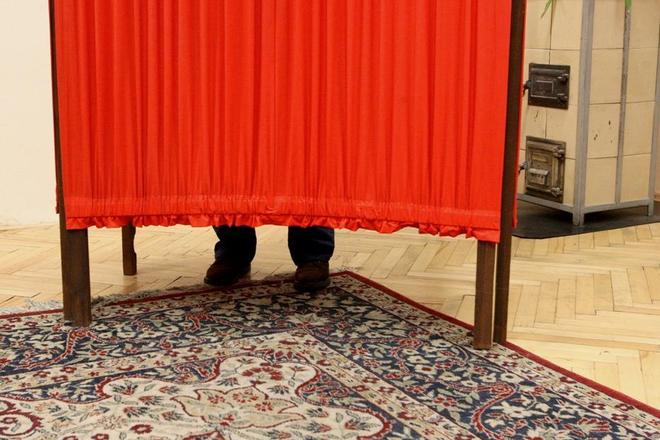THE CAMPAIGN before the February 7 referendum that seeks to tighten the constitutional definition of family is growing increasingly contentious with a controversial internet video, the refusal to broadcast a speech by a Greek Catholic priest by the public-service RTVS and advocates from the lesbian, gay, bisexual, transsexual and intersex (LGBTI) community declining to take part in public events with referendum organisers.
The vote will cost more than €6.3 million, according to estimates, and will seek people’s answers to three questions. The first seeks to limit use of the word “marriage” only when referring to the union of a man and a woman, a second seeks to ban adoption for same-sex couples, and the third allows parents to opt their children out of school classes dealing with sex education or euthanasia.
In one recent campaign controversy, the regional public-service Radio Regina declined to broadcast part of a liturgy from Prešov after Greek Catholic priest Rastislav Baka declined to have some of his homily comments cut out. RTVS explained that parts of his speech were at odds with legislation.
“In our opinion it verges the so-called hate speech and also the violation of Slovak and international legislation,” RTVS spokeswoman Dominika Šulková told the Sme daily.
Baka however called the steps of RTVS groundless and says he will consider legal steps, the daily wrote.
Meanwhile, the Aktuality.sk website published the alleged transcript of the homily. According to it, the priest claimed that in the West children are stolen from Slav families.
“Children are goods there, the real biological mother in Europe does not mean anything in Europe, the gays, homosexuals and paedophiles have the rights, not mother and father,” the transcript reads, as reported by Sme.
The RTVS however has not confirmed the veracity of the published text as it needs consent from the church.
Videos questioned
Meanwhile, a video appeared on the internet, depicting a young boy who is fondled by two men. In the end, he asks the viewers whether they would like to be brought up in something similar.
Independent MP Juraj Miškov and Natália Blahová of Freedom of Solidarity (SaS) already submitted criminal complaints against the video, referring to the alleged incitement to hatred, TASR wrote.
The AZR has already claimed it is not the author of the spot and that it does not even know who made it.
“Currently there are many initiatives and it is not the task of the alliance to comment on them,” Anton Chromík of the AZR told the TASR newswire.
The AZR itself however also released within its campaign a video which raised some questions. It depicts a situation when a homosexual couple comes to adopt a boy. The boy asks where the mother is. In fact, adoption is much longer process, representatives of several children’s homes confirmed to Sme.
Several television stations said they will not broadcast the spot.
The AZR said in early January that it wants to focus in its campaign on children and their right to have a mother and a father. It predicted the campaign to cost €110,000. The fact that their shots were not broadcast on televisions forced AZR to inform the citizens via leaflets, billboards, public discussions and the internet, Sme wrote.
No to discussions
Organisations advocating the rights of the LGBTI community have already said they will not organise a mass campaign.
“By not directly attending it, we as organisations representing the rights of LGBTI people want to show that we do not have even a slight interest in being part of some culture war,” Martin Macko, executive director of Initiative Inakosť, told The Slovak Spectator in a recent interview.
Moreover, the organisations recently announced they will not attend the discussions with initiators of the referendum, though they at first perceived them as “an opportunity for exchanging the arguments and seeking the generally acceptable consensus”.
“Unfortunately, the reality shows that the referendum and the campaign divide our society: they cause conflicts in families, at workplaces, senseless quarrels between friends,” reads the official statement sent to media. “The referendum campaign makes the decent discussion impossible and is limited only to repeating the already disproved lies and half-truths.”
The signatories also hope that the democratic society can handle the manipulation and misleading political agitation and that the time for constructive dialogue will come.
The AZR did not comment on the decision. Its spokeswoman Anna Verešová however told Sme that the discussions could show the public that “both parties strive for a fair and honest discourse”.
Czech homosexual rights activist Jiří Hromada on the other hand said that he supports the decision of LGBTI activists not to attend the discussions. According to him, in democratic parties, there are the discussions on similar issues, but not referendums. The emphasis is “in dialogue with society, the dialogue with politicians, and I think this is the right way”, he said during the political talk show O 5 Minút 12 broadcast by RTVS.



 Casting a vote (source: SITA)
Casting a vote (source: SITA)